Here are five films that didn't crack the list and that are just too astounding to pass by. You may not find them at Blockbuster, but this is the age of Netflix and internet piracy, so queue it or steal it. Better yet, buy them with money you've earned by returning your copy of Another Gay Movie.

Come Undone
(Presque Rien)
(Presque Rien)
If there must be a coming out film on this list, it best be from the French. No preaching, no shouting matches, and no falsely sentimental endings. Come Undone is all about the mood of self discovery and conflicted first love. For Mathieu (Jérémie Elkaim) it becomes an issue of finding himself amidst his desires for the more open Cédric (Stéphane Rideau), as well as some troubling family drama. But drama is hardly the focus in this film, in fact it largely avoids those big moments in pursuit of something far more subdued and atmospheric. The official "coming out scene" is so passingly subtle that it exists merely as a stage of Mathieu's often dark emotional transition. It contrasts well with the sunlit warmth of his escalating feelings for Cédric and their exploratory summer romance. Talented director Sébastien Lifshitz cuts between these two tones to form an ambiguity very much in keeping with Mathieu's internal struggle. Compared to most American fare it's quite sparse and ambient, and that's precisely what gives the film its naturalism. Equal to that is the film's frank sexuality, especially notable in a scene where Mathieu and Cédric take to each other passionately in the dunes. Stéphane Rideau is a wonderfully sexy presence here as well, making the swooning desire all the more palpable.

Law of Desire
(La Ley del deseo)
(La Ley del deseo)
Pedro Almodóvar's equally masterful Bad Education did manage to get honored, but this less available film from the gay Spanish auteur officially cemented his place in queer cinema. Part of the charm of Bad Education is the reflexive nature of Almodóvar's work, and this film acts as somewhat of a precursor to that. The story follows queer director Pablo Quintero (Eusebio Poncela) as he becomes the object of desire for a young fan, Antonio Benítez, played by a smoldering Antonio Banderas. Antonio's endearing nature and inexperience has Pablo quickly warming to him, but Antonio's intense feelings of first love mean taking drastic measures when he finds that Pablo has eyes for someone else. Almodóvar shows his usual talent for rich, unusual love stories and passionate, involving characters. The plot turns are nothing revelatory, but the motivations and complications are effortlessly thoughtful and compelling. It's beautiful work on all fronts, even taking in a notably progressive transgender character, played to perfection by Almodóvar regular Carmen Maura.

Lai Yiu-fai (Tony Leung) and Ho Po-wing (Leslie Cheung) are off and on lovers whose worlds constantly converge and break away in this beautiful and expressive film from Wong Kar Wai, who knows a thing or two about sensuous romance. Kar Wai uses a unique process as a director in which he lets the story evolve and change completely during filming. It allows him to find the greatest truth in his characters and their relationships to form naturally. The outcome is as much a surprise to him as it is to the audience, and perhaps that's why this love story feels so honest and so innovative. Yiu-fai and Po-wing aren't the typical couple cinematically speaking, but their constant battling crossed with their invested need for one another is very typical of real life couples. Happy Together is gorgeous, organic and longing in a way so few relationship films are, especially ones that just happen to be about two men.
 "I worry that you'll work in an office, have children, celebrate wedding anniversaries... The world of a heterosexual is a sick and boring life!"
"I worry that you'll work in an office, have children, celebrate wedding anniversaries... The world of a heterosexual is a sick and boring life!"It's scandalous that not one John Waters movie cracked the list! I'm hoping it's that none of his films are overtly about gay relationships and not that gay audiences haven't sought out his work. Pink Flamingos and Female Trouble are two of his most raucous and reprehensible masterpieces, and Waters influence on queer and underground cinema must be acknowledged. He manages to make absolutely everything subversive, including having drag queen Divine play both the naughty Dawn Davenport and her repugnant rapist. Likewise there's the lovable Aunt Ida (played by the incomparable Edith Massey) persistently urging her nephew to stop being straight, "Queers are just better. I'd be so proud if you was a fag and had a nice beautician boyfriend. I'd never have to worry!" It's hilarious and refreshingly unfiltered. Being crude is one thing, but Waters has the wit to back it up.

Fox and His Friends
(Faustrecht der Freiheit)
(Faustrecht der Freiheit)
Rainer Werner Fassbinder always tackles complex characters and socially relevant themes, and this one is an especially powerful cautionary tale starring Fassbinder himself in the lead. He plays Franz Bieberkopf, nicknamed 'Fox', a gay carnival worker whose desire to transcend his station ultimately pushes him lower than ever before. Fox buys lottery tickets in hopes of making it big, especially since he has to steal or borrow just to get money for the ticket. A chance encounter leads him into the arms of some wealthy and elite gay men who happily feed off Fox once his luck finally cashes in. For a 1975 release date it's a remarkably rounded portrayal of gay characters, both good and bad, which is an immense rarity even for modern releases.

Also missing from the list, perhaps not surprisingly, were any documentaries of value to gay audiences. Upon finally sitting down with The Times of Harvey Milk this last week, I was astounded at just how moving and impactful the life of this legendary activist still is. Harvey Milk's legacy will soon come into focus once again with Gus Van Sant's biopic Milk, but it would be a difficult feat to match this documentary, which will light a fire in the heart of anyone passionate about gay rights.
Additionally, there was no mention of The Celluloid Closet, which gives a worthwhile look at gay cinematic history. I'm actually partial to this compilation I found online called The Lavender Lens. It forms its narrative solely through the editing and takes us through gay representation since the beginning of cinema with clips that are surprising, funny and often unbelievable. A must see.
Get to watching these now if you haven't already had the pleasure. And if you have, write up your own list bitching about the great gay films left off mine.

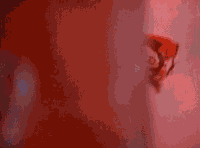
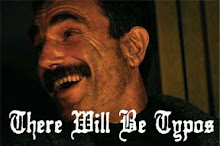
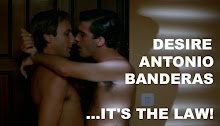
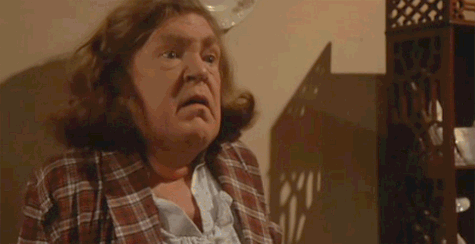
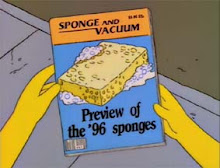
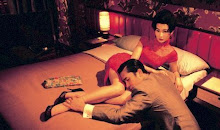
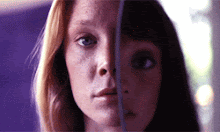


5 comments:
Great picks! And I have seen every single one of them. I have yet to check out AfterElton's picks.
And thank you for the wonderful picture of Edith (Aunt Ida) Massey ... why she never got a star on the Hollywood Walk of Fame is one life's great mysteries.
OK, I checked out AE's list ... some good films, I am so fond of Big Eden, and Angels in America blew me away.
My only complaint?
Where was the original Tales of the City?
There's quite a number of good ones on their list. Angels in America is amazing. How often do we get that great, epic kind of material AND that awesome of an ensemble.
As for Edith Massey, she's one of the best comedic supporting actresses I can think of because she barely even acts. She's just naturally hysterical. Always my favorite character of the films she's in.
The Trip is (on the list?!) ahead of Gods & Monsters?
/shudder
I was happy to C.R.A.Z.Y. mentioned, though.
I was totally surprised C.R.A.Z.Y. made it on there. I had no idea it was well known, but then I've come across it on cable a couple times. Totally deserving though, and it gives me the urge for some Bowie.
Post a Comment